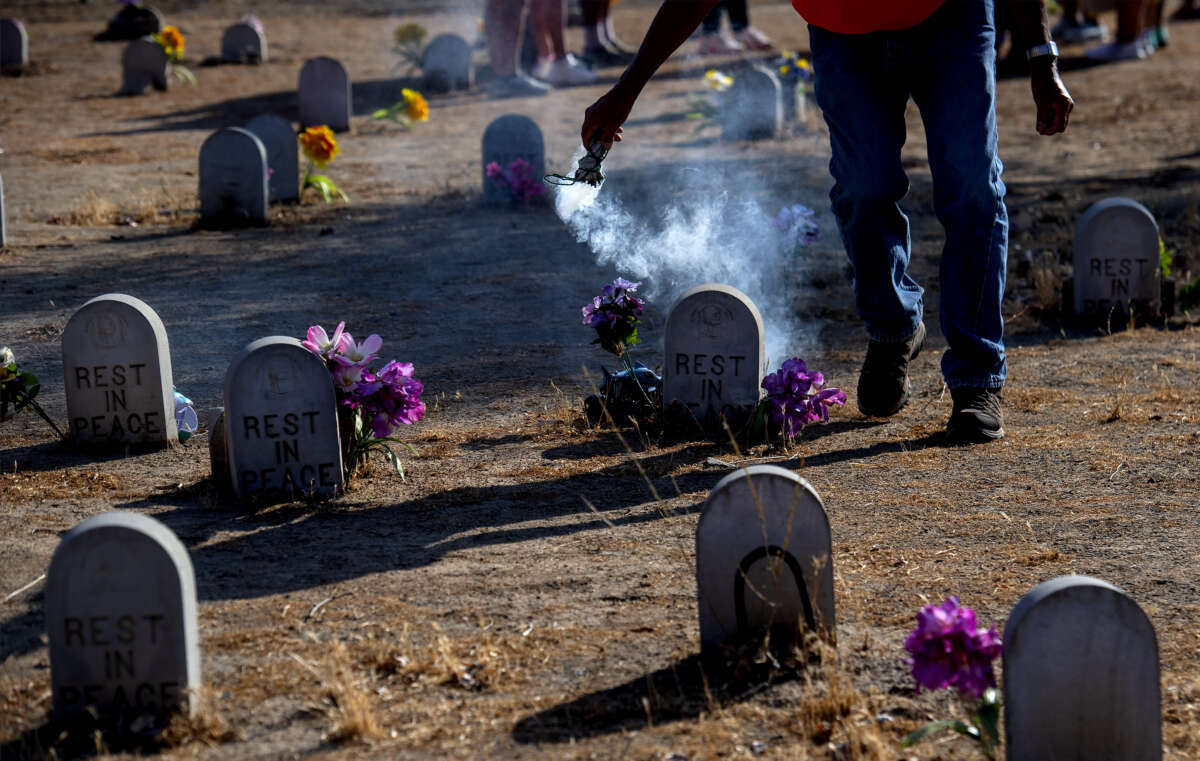The Senate Committee on Indian Affairs unanimously passed an amended bill that would establish an investigation into the United States’ assimilative policies of Indian boarding schools. The full Senate will now decide on the legislation.
The bill, S.1723, would create a Truth and Healing Commission that would identify the locations of Native children’s burial sites, locate church and government records, and document the ongoing impacts to Native communities.
“Native peoples, especially boarding school survivors, deserve justice and the chance to heal. This legislation is the first step,” said Theresa Sheldon, Tulalip, policy and advocacy director for the National Native American Boarding School Healing Coalition in a press release. “SCIA’s bipartisan support for this legislation demonstrates the broad recognition of the need to address the historical injustices committed against Indian Country.”
About seven amendments were filed mostly by Montana Republican Sen. Steve Daines. One that was adopted by Senate Committee on Indian Affairs Chairman Brian Schatz, a Hawai’i Democrat, and Vice Chairman Lisa Murkowski, an Alaska Republican, was the use of subpoenas for information the coalition may need such as records, papers, correspondence, memoranda, documents, books, videos, oral histories, recordings, or any other paper or electronic material.
It would need unanimous consent from the Truth and Healing Commission and could potentially open the access of records from the Catholic Church.
The news follows the Department of Interior’s release of the first volume of the Federal Indian Boarding School Investigative Report in 2022, as well as the “Road to Healing” tour by Deb Haaland, Laguna Pueblo, that began a month after the report at the Riverside Indian School in Anadarko, Oklahoma.
Haaland, a former member of Congress, first introduced an earlier version of the bill in 2020. Sen. Elizabeth Warren, a Massachusetts Democrat, reintroduced the bill in 2022, but it did not make it out of committee to the Senate floor. Warren reintroduced the bill on May 18 and is cosponsored by 28 senators.
“I am glad that my Truth and Healing Commission on Indian Boarding School Policies Act was unanimously reported out of the Senate Indian Affairs Committee today – I look forward to the Senate further advancing this important bill,” Warren said in a statement.
Oklahoma Sen. Markwayne Mullin, another Senate Committee on Indian Affairs member, agreed with the decision to pass the bill, Gaylord News reported.
“I support the bill. There is some work that needs to be done to it,” Mullin, Cherokee Nation, said. “We’re working with the chairman and the ranking member – everybody is working together. “Even senator Warren is working, trying to improve some stuff.”
He was absent for the majority of the hearing’s proceedings and when the final voting occurred. But an amendment proposal he made was adopted to have the final report be publicly available on the website of the applicable agency.
The committee received more than 100 written comments from tribes, Native communities and organizations and individuals that were used to update the bill. Former Chief Commissioner of Canada’s Indian Residential School Truth and Reconciliation Commission, Murray Sinclair, also gave feedback.
“For over a century, the federal government knowingly perpetuated violence and trauma with the goal of assimilating Native children by destroying family and communal bonds, their languages, their cultures, and their very identities. The impacts of this shameful history are felt by survivors and their descendants to this day,” Schatz said in a statement. “Without the guidance and support of Native communities across the country on this important bill, a culturally respectful and meaningful path to truth and healing would not be possible.”
3 Days Left: All gifts to Truthout now matched!
From now until the end of the year, all donations to Truthout will be matched dollar for dollar up to $38,000! Thanks to a generous supporter, your one-time gift today will be matched immediately. As well, your monthly donation will be matched for the whole first year, doubling your impact.
We have just 3 days left to raise $38,000 and receive the full match.
This matching gift comes at a critical time. As Trump attempts to silence dissenting voices and oppositional nonprofits, reader support is our best defense against the right-wing agenda.
Help Truthout confront Trump’s fascism in 2026, and have your donation matched now!
